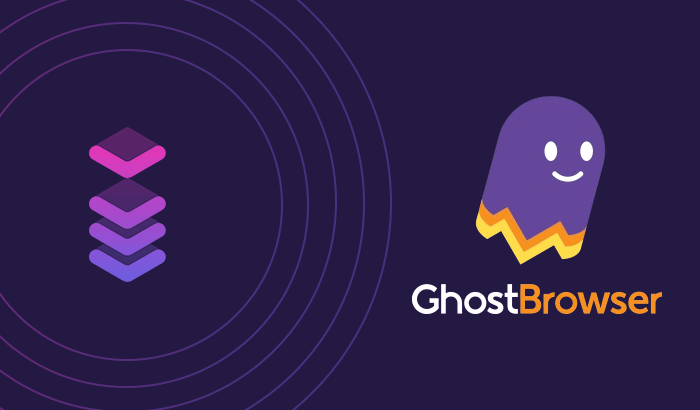- What are Proxies and Their Uses
- Web Scraping and Automation Tasks
- Ecommerce Order Automation
- Sneaker Bots
- Basic Access and Privacy Tasks
- Managing Multiple Accounts
- SEO Monitoring
- Scale of Operations
- Selection Criteria: Proxy Types
- Selection Criteria: Trial and Error
- Selection Criteria: Monitoring Tools and Metrics
- Selection Criteria: Budget Considerations
- Where To Get the Best Proxies?
- Frequently Asked Questions


Proxies are powerful tools that can help you perform various online tasks more efficiently and securely – whether you want to scrape data, monitor SEO, buy sneakers, or access blocked content, proxies can help you achieve your goals. In this article, you will learn what proxies are, how they work, and how many proxies you would need for different purposes. You will also learn how to choose the right type and number of proxies for your needs and budget, and how to optimize your proxy performance and error rates.
What are Proxies and Their Uses
Proxies are intermediaries that act as a bridge between your device and the websites you visit. They offer various benefits, such as:
- Replacing IP addresses, which can help you hide your identity, location, and online activity from the web servers and other parties.
- Enhancing your privacy by filtering out cookies, ads, and malicious content that may track your browsing behavior or compromise your security.
- Bypassing internet filtering and censorship that may restrict your access to certain websites or content based on your IP address or location.
- Improving your connection speed and performance by caching frequently accessed files and reducing bandwidth usage.
Some common use cases of proxies are:
- Web scraping, which is the process of extracting data from websites for various purposes, such as competitive analysis, market research, or price comparison. Proxies help web scrapers avoid anti-bot measures and IP bans that websites use to prevent automated data collection.
- SEO monitoring, which is the process of tracking and optimizing the ranking of websites on search engines. Proxies help SEO experts simulate searches from different locations and devices to check how their websites rank for target keywords and audiences.
- Ad verification, which is the process of ensuring that digital ads are displayed correctly and effectively on the desired websites and locations. Proxies help advertisers audit their ad campaigns and detect fraud, errors, or malicious activity.

Factors That Determine Number of Proxies Needed
Your tasks and activities of choice (e.g. Instagram automation) will determine the optimal number of proxies and their key features like proxy rotation, account switching, and more. Let’s take a closer look at the most popular use cases:
Proxies for Web Scraping and Automation Tasks
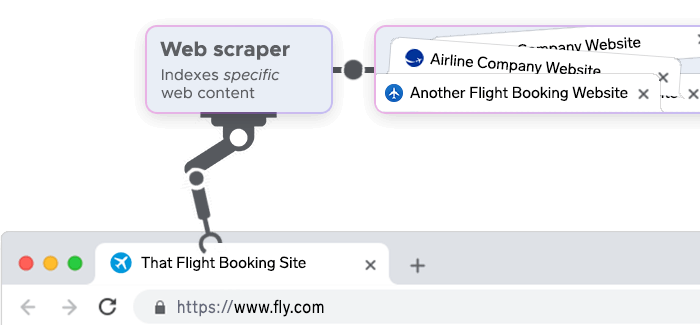
Web scraping bots are programs that automatically extract data from websites for various purposes, such as competitive analysis, market research, or price comparison. SEO tools are applications that help website owners optimize their ranking on search engines by analyzing keywords, traffic, competitors, and other factors. Both web scraping and SEO require accessing large amounts of data from different sources, which can be challenging due to the following reasons:
- Websites may have anti-bot measures that block or limit requests from one IP address, such as captchas, rate limits, or IP bans.
- Moreover, they may have geo-restrictions that prevent access to certain content or prices based on the user's location.
- Finally, they may have dynamic or complex structures that make data extraction difficult or inaccurate.
However, many proxies are not foolproof and can be detected by advanced proxy detection. To circumvent these security measures, use Infatica Scraper API – a data collection software suit that works together with Infatica's proxies for maximum efficiency.
Ecommerce Order Automation
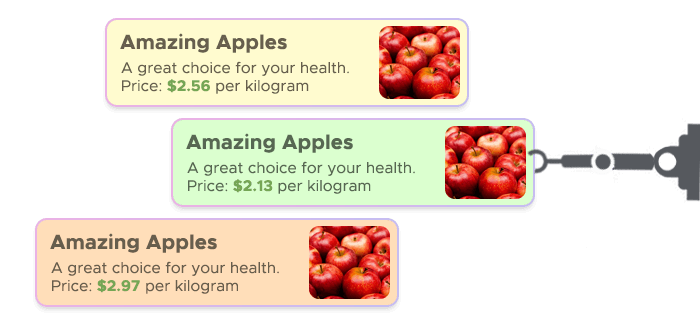
Ecommerce order automation is the process of using software or bots to place orders on online stores, either for personal use or for reselling purposes (e.g. price aggregation.) Many proxies can help with ecommerce order automation in several ways, such as:
- Avoiding IP bans or rate limits from the online stores, which may detect and block suspicious or repetitive requests from the same IP address.
- Accessing geo-restricted products or prices, which may vary depending on the user's location or currency.
- Protecting the user's privacy and security, by preventing the online stores from tracking or compromising the user's data.
Sneaker Bots
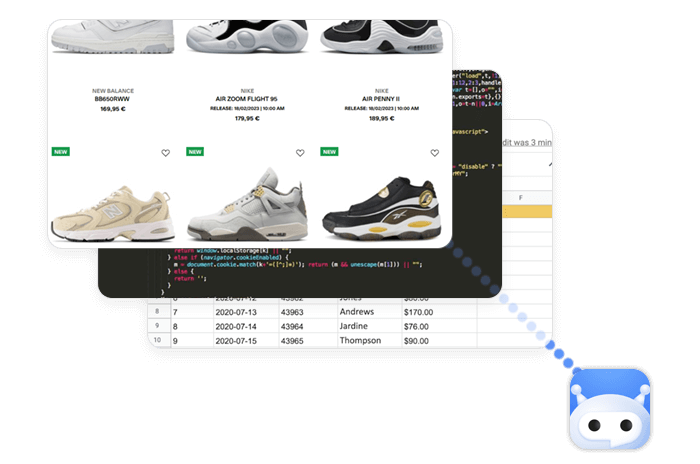
Sneaker bots are programs that automatically buy limited-edition sneakers from online stores as soon as they are released. Proxies can help with sneaker bots in several ways.
The amount of sneaker proxies depends on factors like the number of sneakers, the target websites, the proxy quality, and the budget. Generally, the more sneakers and websites, the more proxies are needed to avoid detection and ensure success. The proxy quality also matters, as some proxies may be faster, more reliable, or more anonymous than others. The budget is also a factor, as many proxies do not offer unlimited bandwidth. Therefore, the user needs to balance these factors and choose the right type and number of proxies for their sneaker bot goals.
Basic Access and Privacy Tasks

Proxies allow you to bypass blocks and geo restrictions by providing a new IP address from a different location – this way, you can access content that may not be available or restricted in your region, such as streaming services, social media platforms, or news websites.
Many proxies can also be used for private browsing by hiding your identity, location, and online activity from the web servers and other parties. They can filter out cookies, ads, and malicious content that may track your browsing behavior or compromise your security. They can also encrypt your data and traffic to prevent anyone from intercepting or snooping on your online communications.
There is no definitive answer to how many proxies you would need, as it depends on various factors, such as:
- The number and frequency of your requests to the target websites.
- The type and quality of your proxies and their IP addresses.
- The level of anti-bot measures and proxy detection techniques used by the target websites.
Managing Multiple Accounts
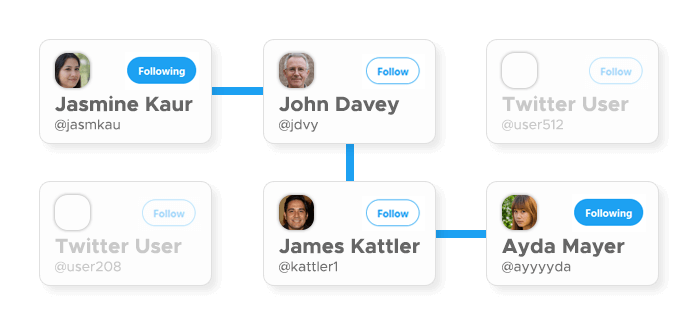
Creating and using multiple accounts on the same platform can be challenging, as most websites have anti-bot measures and policies that limit or ban users who are too eager for Instagram growth or Reddit upvotes. Some of the common challenges are:
- Captchas, which are tests that require human input to verify that you are not a bot.
- Rate limits, which are restrictions on the number of requests you can make to a website in a given time period.
- IP bans, which are blocks on your IP address that prevent you from accessing a website.
Proxies with sticky sessions can help you overcome these restrictions, providing sessions where the proxy IP address stays the same for a certain duration (e.g. one, 10, or 30 minutes.) Sticky sessions are useful for managing multiple users (e.g. eBay accounts), as they provide a consistent and unique IP address for each account, which makes it look like a separate user with an individual IP address. Sticky sessions can also help you avoid captchas and rate limits, as they reduce the frequency of IP changes and requests.
SEO Monitoring
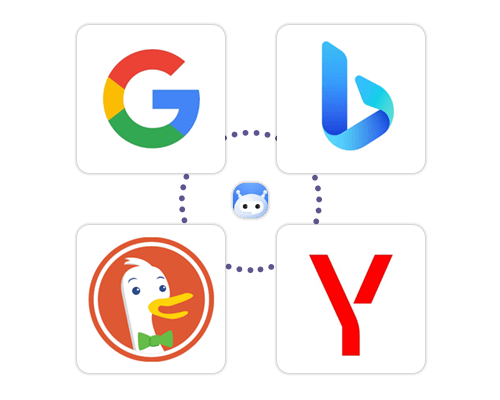
SEO monitoring involves tracking and optimizing the ranking of websites on search engines. Proxies can help with SEO monitoring in several ways, such as:
- Simulating searches from different locations and devices to check how the websites rank for target keywords and audiences.
- Avoiding anti-bot measures and IP bans that websites use to prevent automated data collection and analysis.
- Enhancing the user's privacy and security by preventing the websites from tracking or compromising the user's data.
Generally, you’d need many SEO proxies to avoid detection and blocking if you’re sending many requests. The golden rule is to use one proxy per 100 requests per day, but this may vary depending on your specific needs and goals.
Scale of Operations
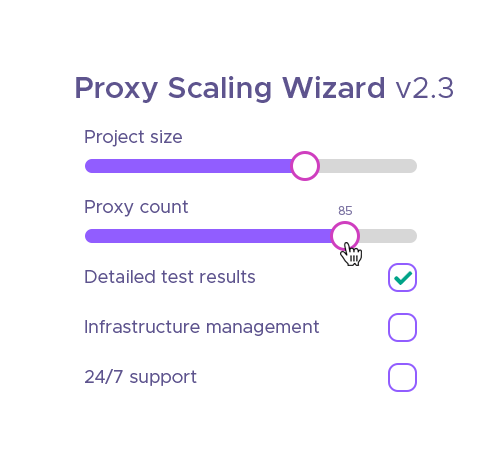
The number of proxies and the frequency of IP changes depend on the specific goals and challenges of your tasks, as well as the cost and performance of your proxies: Small-scale tasks are tasks that involve a low number of requests to a few target websites, such as checking the ranking of your own website on a search engine, or accessing geo-restricted content from a streaming service. For these tasks, you may only need just a few proxies, and you can use sticky sessions to keep the same IP address for a longer time, as long as you do not trigger any anti-bot measures or IP bans.
Large-scale tasks are tasks that involve a high number of requests to many target websites, such as scraping data from multiple sources, or managing multiple accounts on different platforms. For these tasks, you may need hundreds or thousands of proxies, and you may need to use rotating sessions to change your IP address for every request or after a short time, to avoid detection and blocking.
Key Proxy Selection Criteria
Proxies are not all the same, and you need to consider different proxy types and counts for your tasks before determining how many proxies to use. Your choice will largely depend on factors like the target website, the data volume, the scraping frequency, trial terms, and the budget before purchasing them online.
Selection Criteria: Proxy Types
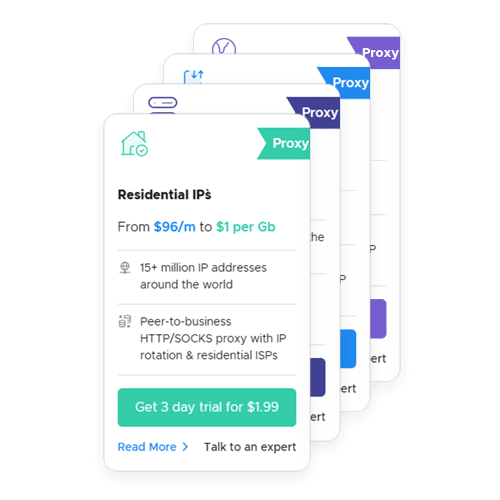
Residential proxies belong to real devices, such as computers or smartphones, connected to the internet by an ISP. They are usually slower and more expensive than datacenter proxies, but also more reliable and secure. Additionally, there are proxy types like residential rotating proxy, which can change (rotate) IPs automatically. Residential proxies can have various use cases, such as web scraping, SEO, social media automation, and ad verification. The number of residential proxies you need depends on the target website, the data volume, the scraping frequency, and the budget. Generally, the more data you need and the more websites you target, the more residential proxies you need to avoid detection and blocking.
Mobile proxies belong to mobile devices, such as smartphones or tablets, connected to the internet by a cellular network. They are very hard to detect and block, but also slower, more expensive, and less reliable. Mobile proxies can have similar use cases as residential proxies, but they are more suitable for accessing mobile-specific content or websites. The number of mobile proxies you need depends on the same factors as residential proxies, but you may need fewer mobile proxies than residential proxies, as they are more diverse and less likely to be blacklisted.
Datacenter proxies belong to servers hosted in datacenters, not connected to any ISP or device. They are fast, cheap, and reliable, but also easy to detect and block. Datacenter proxies can have various use cases, such as web scraping, SEO, social media, and ad verification. The number of datacenter proxies you need depends on the same factors as residential proxies, but you may need more datacenter proxies than residential proxies, as they are less diverse and more likely to be blacklisted.
Rotating proxies are proxies that change (rotate) IPs automatically, either for every request or after a certain time. They can be residential, mobile, or datacenter proxies, depending on the source of the IPs. They are useful for web scraping, SEO, social media, and ad verification, as they provide a high level of anonymity and diversity for your requests, which makes it harder for websites to detect and block you. The number of rotating proxies you need depends on the same factors as residential proxies, but you may need fewer rotating proxies than static proxies, as they reduce the frequency of IP changes and requests.
Selection Criteria: Trial and Error

Starting with a small number of proxies and gradually scaling up based on performance is a good idea because it allows you to:
- Test the quality and reliability of your proxies before investing too much money and time in them.
- Monitor the response and behavior of the target websites and adjust your proxy settings accordingly to avoid detection and blocking.
- Optimize your proxy usage and performance by finding the optimal balance between speed, anonymity, and diversity.
- Save money and resources by only using the number of proxies that you actually need for your tasks.
Selection Criteria: Monitoring Tools and Metrics
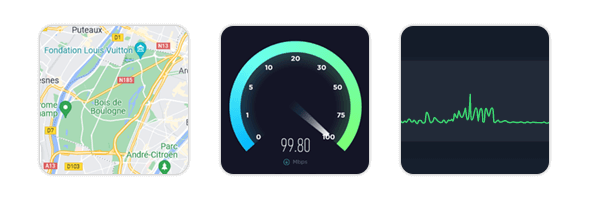
Some specific proxy quality metrics that you can use to evaluate your proxies are:
- Latency: the delay or time lag when data travels between your device, the proxy server, and the target server. Low latency means quick interactions, essential for activities that demand real-time communication, such as gaming or video conferencing.
- Throughput: the amount of data that can be transferred or processed by the proxy server in a given time. High throughput means fast data delivery, important for activities that require large data volumes, such as web scraping or SEO.
- Reliability: the availability and consistency of the proxy server and its IP address. High reliability means stable and uninterrupted internet connection, crucial for activities that depend on continuous access, such as social media or ecommerce.
- Anonymity: the level of protection and privacy that the proxy server and its IP address provide. High anonymity means low risk of detection and blocking, desirable for activities that involve sensitive or restricted data, such as ad verification or geo-unblocking.
You can use tools like Proxy Checker or Proxy Tester to test the speed, reliability, and anonymity of your proxies before using them. You can also use tools like Datadog or HAProxy Stats to monitor the performance and error rates of your proxies in real time. By analyzing error rates, you can identify and troubleshoot the root causes of proxy issues, and optimize your proxy usage and performance.
Selection Criteria: Budget Considerations
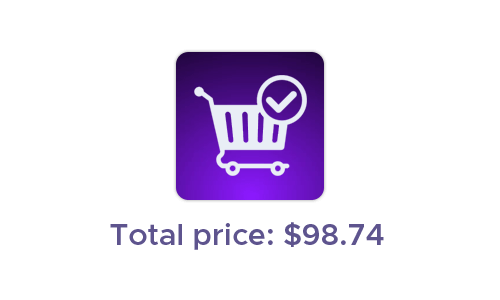
Here are some general tips that may help you with deciding how many proxies to use allocating budget and adjusting proxy numbers according to budget constraints:
- Start by estimating your budget based on your expected revenue, expenses, and goals. You can use tools like Budget Calculator or Budget Planner to help you create a realistic and flexible budget.
- Next, determine your proxy needs based on your tasks, target websites, data volume, scraping frequency, and proxy quality. You can use tools like Proxy Calculator or Proxy Estimator to help you calculate the optimal number and type of proxies for your tasks.
- Then, compare your proxy needs with your budget and see if you can afford the proxies that you need. If not, you may need to adjust your proxy numbers or types, or look for cheaper or more efficient proxy providers. You can use tools like Proxy Comparison or Proxy Review to help you find the best proxy deals for your budget.
- Finally, monitor your proxy performance and error rates regularly and see if you need to scale up or down your proxy usage. You can use tools like Proxy Checker or Proxy Tester to help you test and optimize your proxies.
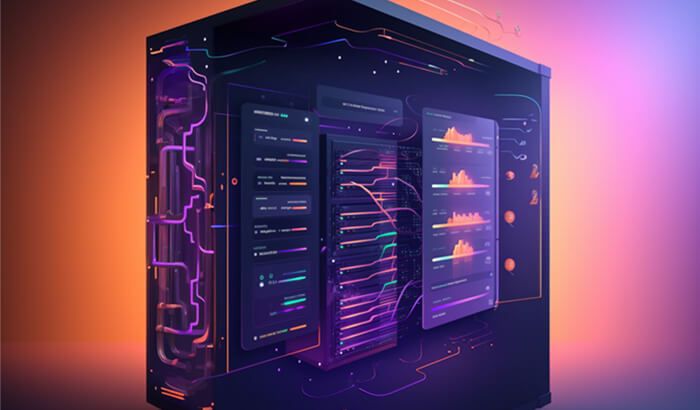
Where To Get the Best Proxies?
Infatica is a proxy provider that offers various types of proxies, such as residential, mobile, datacenter, and rotating proxies. Some of the key features and benefits of Infatica are:
- It provides a large and diverse pool of proxies from different countries and regions, which can help you access geo-restricted or blocked content, as well as simulate searches from different locations and devices. It supports all popular protocols, such as HTTP, HTTPS, and SOCKS5, which can help you use proxies with different applications and platforms, such as web browsers, web scrapers, SEO tools, and more.
- Infatica offers affordable and flexible pricing plans, which can help you choose the right number and type of proxies for your needs and budget. You can also use the pay as you go plan, which does not expire at the end of the month and allows you to use the proxies until you run out of bandwidth.
- Additionally, it ensures high quality and reliability of its proxies, which can help you avoid detection and blocking by the target websites, as well as enhance your privacy and security by hiding your identity, location, and online activity.
- Last but not least, Infatica has a user-friendly and intuitive dashboard, which can help you manage and monitor your proxies easily and efficiently. You can also use the API to integrate Infatica with your own applications and systems.
Conclusion
Determining how many proxies to use for the given task is doable: You need to monitor and optimize your proxy performance and error rates, avoid wasting money and resources and compromising your sensitive data and security. By following the tips and tricks in this article, you can use proxies effectively and efficiently for your online tasks.





